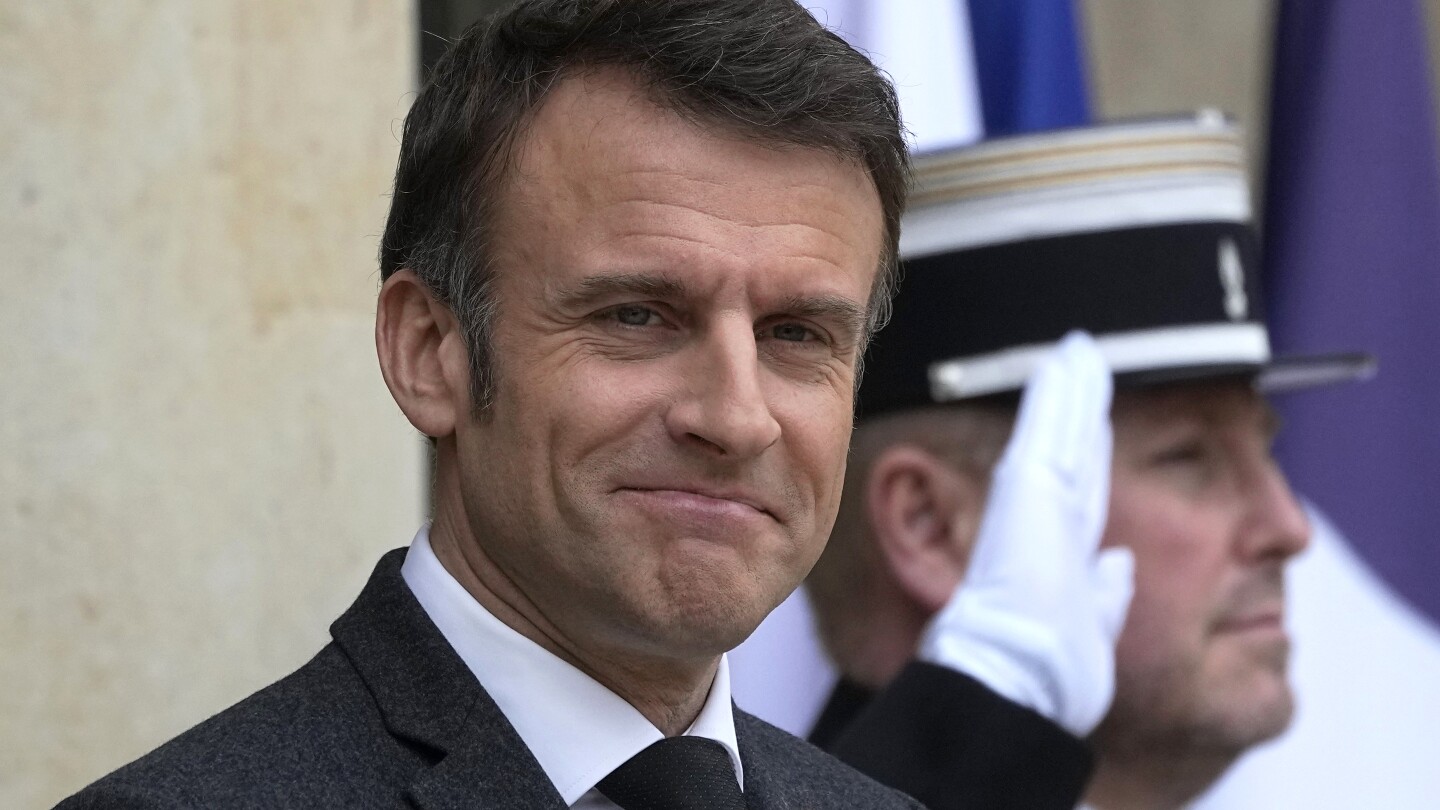PARIS (AP) — French President Emmanuel Macron planned to speak Thursday evening on national television about how to further support Ukraine, after drawing pushback from European leaders last month when he said sending Western ground troops shouldn’t be ruled out.
The live interview to be broadcast by TF1 and France 2 comes after the French parliament debated the country’s Ukraine strategy this week. Both the National Assembly and the Senate approved in symbolic votes the 10-year bilateral security agreement signed last month between Macron and Ukrainian President Volodymyr Zelenskyy.
Macron planned to meet on Friday with German Chancellor Olaf Scholz and Polish Prime Minister Donald Tusk in Berlin in a summit meant to show unity.
The French president appeared isolated on the European stage after his remarks at a Paris conference on Ukraine prompted an outcry from other leaders. Scholz, in particular, appeared to contradict Macron, saying participants had agreed there will be “no ground troops” on Ukrainian soil sent by European states.
French officials later sought to clarify Macron’s remarks and tamp down the backlash, while insisting on the need to send a clear signal to Russia that it cannot win in Ukraine.
Speaking on Tuesday at the National Assembly, Prime Minister Gabriel Attal said Macron’s message “has been very clear: We will not abandon Ukraine and we are not ruling out any option on principle.”
France is not “waging war against Russia” and “rejects any escalation,” Attal said, and he added: “We don’t set ourselves limits against Russia, which doesn’t set any (limits) for itself.”
Scholz on Wednesday appeared dismissive of any speculation of frictions between France and Germany, saying he has a “very good personal relationship” with Macron.
France, Germany and Poland will meet as the so-called Weimar Triangle, and the grouping is especially important now that “we are all so concerned about the terrible consequences of the Russian war of aggression on Ukraine,” Scholz said.
Supporting Ukraine “is a very concrete and very practical question of whether there is enough ammunition, enough artillery, enough air defense – many things that play a major role. And discussing and advancing this cooperation once again is what is needed right now,” he said.
___
AP writer Kirsten Grieshaber in Berlin contributed to the story.
___
Follow the AP’s coverage of the war at https://apnews.com/hub/russia-ukraine

